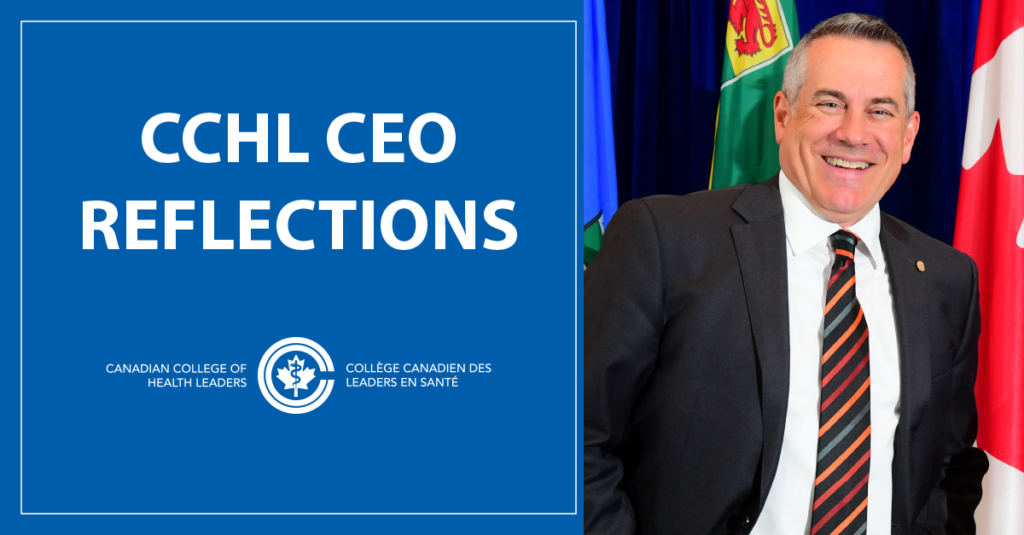As many of you know, we recently redesigned the Canada West Health Leaders Conference with the active support of our western and northern chapters and our many sponsors. This virtual experience was well received by many health leaders who benefited from the opportunity for self reflection and a few moments of rejuvenation.
The theme of the conference, Emerging from chaos – Empowering leadership for what comes next, was brought to light by four engaging and dynamic plenary speakers. In the next few paragraphs, I will do my best to summarize the takeaways and stitch this together in an overall message.
On day one, we enjoyed listening to Dr. Ivan Joseph and Louisa Jewell who were very different in the approach and delivery of their sessions, but also very complementary. Ivan was an energetic, stream of consciousness speaker who shared his personal stories and commitment to people who think differently, promoting diversity, and generating a feeling of belonging in our team members and employees. In his view, a shared purpose, our north star, our collective groove drives performance.
The main question that Louisa tried to answer was; in adversity and situations of stress, how can we access the tools to survive and thrive? Her presentation was a methodical and evidence-informed discussion around four specific and practical strategies that we can use to “ struggle well”. These include striving to net positive everyday, nurturing high quality connections, focusing on strengths and engaging in active constructive responses.
On day two, we were privileged to share Waneek Horn-Miller’s very personal account of her journey as an Indigenous person and Olympic athlete. She talked about the importance of the various forks in the road on life’s journey, the importance of perseverance, having control, and following your dream. Again, this was a very personal story that certainly resonated with the audience and connected well to Ivan and Louisa’s presentations.
Hamza Khan wrapped up the conference in grand style as he shared his own personal story and experience with burnout. How is it that there are more and more resources and tools to manage stress and burnout and yet the prevalence of burnout is on the rise? This presents a real challenge for leaders, especially in healthcare. Hamza introduced a possible response to this challenge, which is bidirectional compassion. This is a two-way flow of compassion, support, and energy from leaders to contributors, and contributors to leaders. At the end of the day, resilience, managing burnout, reducing stress, is a team effort. Progress and calm are more important than perfection and chaos.
Having listened to all four speakers, my first takeaway is that we can all draw on our own personal experience or on others’ shared experience to gain insight into how to emerge on the other side of chaos and crisis. My second takeaway is that there are practical and simple approaches we can implement to make all this easier. But none of this is easy at all.
Alain Doucet
President and CEO
Canadian College of Health Leaders



